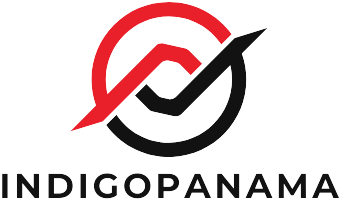Table of Contents
ToggleIn the quest for wealth, people often chase shiny investments or the latest money-making fads. But what if the secret to financial success isn’t a secret at all? Picture this: your greatest tool for building wealth is sitting right under your nose. Spoiler alert: it’s not a magic wand or a genie in a bottle.
Understanding the Concept of Wealth Building
Wealth building revolves around a systematic approach to financial growth. Achieving financial security often requires a focus on consistent saving, prudent investing, and careful budgeting. Knowledge about asset management stands as a cornerstone for developing wealth.
Strategies for cultivating wealth may include diversifying investment portfolios to mitigate risks. Establishing multiple sources of income helps generate additional cash flow. Setting financial goals provides a roadmap for tracking progress and making informed decisions.
Time plays a crucial role in wealth accumulation. The earlier an individual begins to save and invest, the greater the potential for compound growth. Regular contributions to investment accounts can amplify wealth over time.
Mindset significantly influences wealth building. An abundance mindset fosters the belief that opportunities for financial growth exist. Viewing setbacks as learning experiences instead of failures can lead to improved financial strategies.
Understanding expenses is vital in the wealth-building process. Identifying areas for cost reduction allows for increased savings, enabling more investment opportunities. Monitoring spending habits also facilitates better financial decision-making.
Education regarding financial literacy remains fundamental. Knowledge about interest rates, inflation, and market trends enhances one’s ability to make sound investments. Engaging with financial advisors can provide personalized insights tailored to individual goals.
Cultivating a strong network can also support wealth building. Connections with like-minded individuals or professionals can offer new perspectives and opportunities. Collaborating with other wealth-builders often results in shared resources and accountability.
The Importance of Financial Literacy

Financial literacy plays a crucial role in achieving financial success. Understanding personal finance equips individuals with the knowledge to make informed decisions about saving, investing, and budgeting.
Key Principles of Wealth Creation
Establishing a budget serves as a foundational element for effective wealth creation. Tracking income and expenditures allows individuals to identify spending patterns. Investing early leverages the power of compounding, significantly enhancing the growth of savings. Diversifying investments reduces risk by spreading capital across various assets. Setting clear financial goals creates a roadmap, guiding individuals towards their wealth objectives. Accessing reputable financial resources aids in making sound investment choices, further supporting long-term financial success. Commitment to continuous learning fosters a deeper understanding of financial markets and strategies.
Common Misconceptions About Wealth
Many believe wealth comes solely from high incomes, but financial stability often stems from smart money management. Another misconception is that investing is only for the wealthy; anyone can start investing with even small amounts. Some think that debt is always detrimental, yet strategic debt can leverage opportunities for wealth growth. Additionally, many overlook the importance of patience; wealth accumulation takes time and consistent effort. Certain individuals assume that financial literacy only involves learning complex concepts, but basic knowledge of budgeting, saving, and investing proves vital for everyone. Removing these myths clarifies the path to effective wealth building.
Identifying Your Greatest Tool to Building Wealth
Identifying the most effective tool for building wealth often starts with recognizing personal development and mindset’s role. A growth mindset enhances resilience and encourages risk-taking. Embracing challenges facilitates learning from setbacks. By fostering a positive attitude, individuals amplify their ability to seek opportunities. Consistent self-improvement through education and skill development lays a strong foundation for financial growth. Prioritizing emotional intelligence also cultivates better decision-making. In essence, mindset and personal development form the core of wealth-building success.
Strategic investment choices play a critical role in wealth accumulation. Diversifying investment portfolios reduces risk and enhances returns. Choosing assets based on thorough research can lead to informed decisions. Real estate, stocks, and bonds each provide unique benefits and risks. Understanding different asset classes allows for more effective allocation of resources. Prioritizing long-term investments often yields greater compounding benefits over time. Engaging with financial advisors provides personalized insights, further refining investment strategies. Ultimately, strategic choices empower individuals to navigate the complexities of wealth building effectively.
Practical Steps to Leverage Your Greatest Tool
Building wealth involves actionable steps that create a solid financial foundation. Two pivotal aspects include setting clear financial goals and developing a sustainable budget.
Setting Clear Financial Goals
Establishing specific financial goals provides direction. Goals should be measurable and time-bound, allowing trackable progress. Examples include saving a specific amount for a home or creating an emergency fund worth three to six months of expenses. Achieving short-term and long-term goals motivates continued financial discipline. Revisiting these goals periodically ensures alignment with changing circumstances or desires. Writing down goals enhances commitment, making them more tangible and real. Celebrate small milestones along the way, as recognizing accomplishments fuels momentum.
Developing a Sustainable Budget
A sustainable budget serves as a practical roadmap for spending and saving. Track all income sources and categorize expenses to pinpoint tracking areas for improvement. Prioritize necessary expenses such as housing, utilities, and groceries. Allocate funds for discretionary spending while ensuring saving goals remain on track. Review this budget monthly to assess deviations and adjust as needed. Integrating savings into the budget guarantees growth in savings accounts. Tools like apps or spreadsheets simplify the budgeting process, making it easier to adhere to financial plans.
Building wealth is a journey that requires dedication and the right tools. By focusing on financial literacy and a strategic mindset individuals can unlock their potential for financial success. It’s about making informed choices and cultivating habits that lead to long-term growth.
With a commitment to consistent saving and smart investing, anyone can take control of their financial future. Embracing a growth mindset and continually seeking knowledge sets the foundation for navigating the complexities of wealth building.
Ultimately the path to financial prosperity is accessible to those who are willing to learn and take action. By leveraging practical strategies and maintaining a positive outlook individuals can transform their financial landscape and achieve their wealth-building goals.







